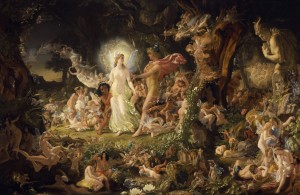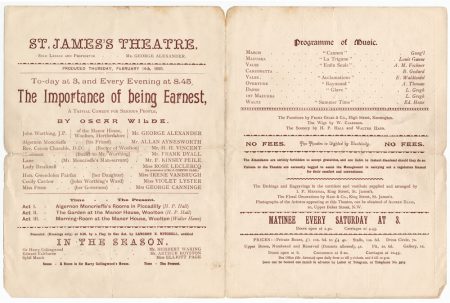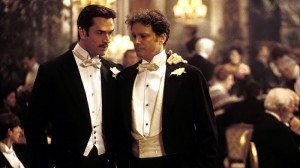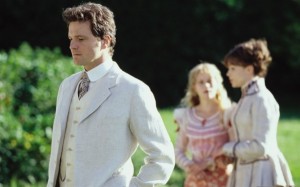Mya Gosling of Good Tickle Brain is a master of distilling Shakespeare into clever illustrations. Here’s her take on our friends in Messina.

Mya Gosling of Good Tickle Brain is a master of distilling Shakespeare into clever illustrations. Here’s her take on our friends in Messina.

Comments Off on All You Need to Know about Much Ado
Filed under AP Literature
Artist Mya Gosling’s Peace, Good Tickle Brain online is a treasure trove of Shakespeare-related fun, including three-panel cartoons for a number of the plays. Here’s her cartoon for A Midsummer Night’s Dream:

Her version of Midsummer with Star Wars action figures is a hoot. What happens when Luke, Leia, Han, Chewie, Darth Vader, C-3PO, Yoda, and even Emperor Palpatine become the “Rude Galacticals”? It starts here.
Comments Off on Midsummer Simplified
Filed under AP Literature
 Shakespeare borrowed from novels, older plays, history, mythology, and other sources. His plays are typically divided into three groups: histories, comedies, and tragedies. Some scholars include his later plays, like Cymbeline and The Tempest, in a group called the romances. Shakespeare comedies exemplify various types: The Comedy of Errors, The Taming of the Shrew, and The Merry Wives of Windsor (farce); A Midsummer Night’s Dream, As You Like It, Much Ado About Nothing, and Twelfth Night (romantic comedies); All’s Well That Ends Well, Measure for Measure, and Troilus and Cressida (dark comedies).
Shakespeare borrowed from novels, older plays, history, mythology, and other sources. His plays are typically divided into three groups: histories, comedies, and tragedies. Some scholars include his later plays, like Cymbeline and The Tempest, in a group called the romances. Shakespeare comedies exemplify various types: The Comedy of Errors, The Taming of the Shrew, and The Merry Wives of Windsor (farce); A Midsummer Night’s Dream, As You Like It, Much Ado About Nothing, and Twelfth Night (romantic comedies); All’s Well That Ends Well, Measure for Measure, and Troilus and Cressida (dark comedies).
A Midsummer Night’s Dream, first performed about 1594, is where Shakespeare as an artist begins to emerge. The play combines a number of comedic elements, from the farcical actions of the “rude mechanicals” and their play-within-a-play to the rich language of the lovers, elevating the comedy into something different. The mystery of the forest setting and the various moods provide a base for future comedies, where more finely drawn and developed characters like Rosalind of As You Like It, Portia and Shylock of The Merchant of Venice, and the twins Sebastian and Olivia of Twelfth Night take important roles.
A Midsummer Night’s Dream is a good way to kick off our study of Shakespeare because within its boundaries, we see many Shakespearean play characteristics brought to life, like the parallel worlds of the city and the forest, mirrored characters like Theseus/Hippolyta and Oberon/Titania, and the contrasts between upper- and lower-class characters. These differences are found primarily in language level and style; the rulers and lovers speak poetically and beautifully, but the rustics from the lower classes have speech that is rougher and less rhythmic. Humor is found in wit (upper), farce (upper and lower), and downright bawdy language (lower). These shadings highlight the appeal that Shakespeare’s works had for all levels of the theater-mad Elizabethan society.
As you read, be on the lookout for a few of Shakespeare’s most famous lines, such as “The course of true love never did run smooth” and “Lord, what fools these mortals be!”
As with most Shakespeare plays, filmed versions abound. Of special note are the 1968 Peter Hall-directed version (young and gorgeous Diana Rigg and Helen Mirren play Helena and Hermia, with the inimitable Judi Dench as Titania) and the 1999 Michael Hoffman production starring Kevin Kline, Michelle Pfieffer, Rupert Everett, and Stanley Tucci in a memorable performance as Puck. The 2002 film A Midsummer Night’s Rave transports elements from the plot and several characters into L.A.’s rave scene—obviously not a true version of the play, but true to the spirit of the play, Shakespeare’s most fanciful comedy.
The full text of A Midsummer Night’s Dream may be found here.
A PDF copy of the text may be found here.
Illustration: The Quarrel of Oberon and Titania by Joseph Noel Paton
Brockett, Oscar G. The Theatre: An Introduction, Historical Edition. New York: Holt, 1979.
Mordden, Ethan. The Fireside Companion to the Theatre. New York: Fireside, 1988.
Comments Off on A Midsummer Night’s Dream
Filed under AP Literature
 The London Society (note the capital “S”) of Oscar Wilde’s time obeyed strict rules of propriety, especially in the upper classes Wilde is targeting poking fun at in The Importance of Being Earnest. The following terms are provided to help you navigate the British drawing room culture more smoothly.
The London Society (note the capital “S”) of Oscar Wilde’s time obeyed strict rules of propriety, especially in the upper classes Wilde is targeting poking fun at in The Importance of Being Earnest. The following terms are provided to help you navigate the British drawing room culture more smoothly.
NOTE: There may be some confusion regarding the difference in Gwendolyn’s and Lady Bracknell’s names. British peers like Gwendolyn’s father would have both a family name and a title. In this case, the family name is Fairfax. Wilde does not use his first name, as that would be wildly improper, so we’ll just invent one for him: George. Therefore, Gwendolyn’s father would be Mr. George Fairfax, Lord Bracknell. He is married to Augusta Moncrieff Fairfax, Lady Bracknell. Lord and Lady Bracknell would be referred to by their titles in society and by their names only by family. Gwendolyn, as the eldest daughter, would be Miss Fairfax, since she does not hold the title. Jack and Algy are gentlemen without titles, so they are Mr. Worthing and Mr. Moncrieff.
morning-room – informal sitting room for daytime use
salver – serving tray. Personal cards, tea items, mail, etc. were usually offered on a salver to the gentleman or lady of the house by a servant
Scotland Yard – headquarters of the London metropolitan police
sent down – asked to escort a lady to the dining room
crumpet – a small, unsweetened cake cooked on a griddle and usually served toasted
Grosvenor Square – residential area for the well-to-do
Liberal Unionist – member of England’s Liberal Party opposed to home rule for Ireland
Tories – members of England’s Conservative Party
purple of commerce – wealthy businessmen who were given titles in the late Victorian period
cloak-room – room where luggage can be checked
the Empire – popular theater and amusement hall
smoking jacket – a man’s lounging jacket, usually of velvet or silk, for wear at home
Mudie – a lending library in London
Evensong – evening worship service
buttonhole – flower worn in a lapel buttonhole (no gentleman would go without one)
portmanteau – leather suitcase
dog-cart – open, horse-drawn carriage, originally with a special seat for a hunting dog
lorgnette – handheld eyeglasses attached to a handle
terminus – British term for a station located at the end of a transportation line
Court Guides – books containing the names and addresses of people in high society
Funds – government bonds of Great Britain
Oxonian – student at or graduate of Oxford, a prestigious English university
Anabaptist – religious group founded in the sixteenth century in Switzerland who believed in adult, rather than infant, baptism
perambulator – baby carriage
Comments Off on Entering the Drawing Room – Colloquial Terms for Earnest
Filed under AP Literature
 Oscar Wilde, the Irish playwright who became the darling of British high society, is probably the best-known and most-quoted satirist of the late 19th century. Born in Dublin, Ireland in 1864, Wilde became a well-known lecturer, essayist, and playwright who enjoyed near-universal popularity until the shocking trial that ended his literary career and, not long after, his life.
Oscar Wilde, the Irish playwright who became the darling of British high society, is probably the best-known and most-quoted satirist of the late 19th century. Born in Dublin, Ireland in 1864, Wilde became a well-known lecturer, essayist, and playwright who enjoyed near-universal popularity until the shocking trial that ended his literary career and, not long after, his life.
Wilde’s parents encouraged his intellectual pursuits. His success at Dublin’s Trinity College ended in his receiving a scholarship to Oxford University in England, where he won prizes for his academic achievements and his writings. He graduated with a degree in classics. Wilde was a strong proponent of the intellectual movement known as aestheticism, which emphasized the pursuit of beauty more than social-political themes for the arts. His lecture tour of the United States introduced him to many American artists and intellectuals, including the poet Walt Whitman. He continued lecturing upon his return to England in 1882.
Wilde began his professional writing career as the editor of the magazine Lady’s World. In 1888, he published The Happy Prince and Other Stories, a collection for children. Three years later, his only novel, The Picture of Dorian Gray, about a man whose enchanted portrait ages so that he can continue living a life of sin, was published in 1891. Dorian Gray was viewed as scandalous and immoral, a hint of troubles to come.
 The next year, Wilde’s first play, Lady Windermere’s Fan, made its debut to great acclaim. Playwriting became Wilde’s preferred literary style. Lady Windermere’s Fan was followed in short order by A Woman of No Importance in 1893 and both An Ideal Husband and his most famous play, The Importance of Being Earnest in 1895. Each of these works skewered the pretensions of British high society through clever wordplay and Wilde’s satirical wit.
The next year, Wilde’s first play, Lady Windermere’s Fan, made its debut to great acclaim. Playwriting became Wilde’s preferred literary style. Lady Windermere’s Fan was followed in short order by A Woman of No Importance in 1893 and both An Ideal Husband and his most famous play, The Importance of Being Earnest in 1895. Each of these works skewered the pretensions of British high society through clever wordplay and Wilde’s satirical wit.

Irene Vanbrugh as Gwendolen Fairfax and George Alexander as Jack Worthing in the 1895 production of ‘The Importance of Being Earnest’, from The Sketch magazine, London, March 1895. NAL 131655
Wilde’s gift for the cutting remark and his razor-sharp acuity about human folly would have made him a natural at Twitter, had social media existed at the time. As it was, he could be counted on to provide a smart remark about just about any topic:
“There is always more books than brains in an aristocracy.” —Vera, or The Nihilists
“The English mind is always in a rage. The intellect of the race is wasted in the sordid and stupid quarrels of second-rate politicians or third-rate theologians.” —The Critic As Artist
“One is impressed in America, but not favourably impressed, by the inordinate size of everything. The country seems to try to bully one into a belief in its power by its impressive bigness.” —Impressions of America
“If one could only teach the English how to talk, and the Irish how to listen, society here would be quite civilised.” —An Ideal Husband
“The Rhine is of course tedious, the vineyards are formal and dull, and as far as I can judge, the inhabitants of Germany are American.” —Letter to Robert Ross
“It is the Philistine who seeks to estimate a personality by the vulgar test of production.” —Pen, Pencil, and Poison
“There is no sin except stupidity.” —The Critic as Artist
The year 1895 proved both the pinnacle of Wilde’s success as an artist and the nadir of his personal life. Wilde was married to a woman named Constance Lloyd, and although he and Constance had two children together, it was no secret that Wilde’s true affections lay elsewhere. He had for years enjoyed a close relationship with Lord Alfred “Bosie” Douglas, the son of the powerful Marquess of Queensbury. When the Marquess found out about the relationship, he publicly accused Wilde of homosexuality, which was a crime in Great Britain at the time. Wilde sued the Marquess for libel, which proved his undoing. At the trial, excerpts from his writings and his personal letters to Bosie were presented as evidence. His libel case was dismissed. Wilde was convicted of “gross indecency” and sentenced to two years at hard labor.
Wilde emerged from prison a broken man, his popularity shattered and his family and fortunes gone. He spent the next couple of years in exile. His only writing from that period was the long poem “The Ballad of Reading Gaol,” which chronicled his prison experience.
In 1900, Wilde contracted a serious case of meningitis at the age of 46 while living in a shabby Paris hotel. Witty to the end, his reputed last words were, “My wallpaper and I are fighting a duel to the death. One or other of us has got to go.”
SOURCES:
https://www.biography.com/people/oscar-wilde-9531078
http://www.vam.ac.uk/content/articles/t/the-importance-of-being-earnest-first-stage-production/
http://quotes.yourdictionary.com/articles/oscar-wilde-s-reputed-last-words.html
Comments Off on Oscar Wilde Introduction
Filed under AP Literature
The opening credits of Disney’s animated film Hercules (yes, that’s the Roman name, but retraining Americans to say the proper Greek “Herakles” is a high bar even for Disney to clear) plays with the concept of the Greek chorus. Included in this short clip are references to the rise of the pantheon of gods after the defeat of the Titans, the role of the muses in Greek mythology, the characteristic art of Greek vases, a gorgeous presentation of Mount Olympus (check out Apollo and his flaming chariot of the sun!), and, of course, the musical pun of the gospel style of the song and its title, “The Gospel Truth.”
As a side note, the stentorian introduction is voiced by the late actor Charlton Heston, whose fame was solidified based on his roles in the films The Ten Commandments and Ben-Hur, so there’s another performing arts pun for you: who better to narrate the tale of an epic hero than, well, the quintessential Hollywood epic hero? Enjoy!
Comments Off on A Modern Greek Chorus
Filed under AP Literature
 To prepare for your test on The Importance of Being Earnest, answer the following questions. You do not have to copy the questions, but you should prepare good answers.
To prepare for your test on The Importance of Being Earnest, answer the following questions. You do not have to copy the questions, but you should prepare good answers.
We are also focusing on the humor of the play. You should select five lines from your assigned act. Copy the line and explain why it is funny. Wilde may be using one of the hallmarks of satire (Exaggeration, Reversal, Incongruity, or Parody), or he could be using wordplay. Select your act based on your birthday:
Act I: January – April
Act II: May-August
Act III: September – December
The Importance of Being Earnest
1. John Worthing uses two names. List the two names and tell where he uses each one.
2. Explain how Gwendolyn, Algernon, and Lady Bracknell are related.
3. Name the main reason Lady Bracknell refuses to let Mr. Worthing marry Gwendolyn.
4. How did John Worthing acquire his name and his wealth?
5. Algernon has also created a false identity. Name that person and explain why Algy has created him.
6. TRUE OR FALSE: Gwendolyn has “Ernest” tattooed on her behind.
7. Explain how John Worthing and Cecily Cardew are related.
8. What does John Worthing say has happened to Ernest?
9. How does Algernon gain access to the Manor House?
10. What do Cecily and Gwendolyn discover about their marriage plans?
11. What do John Worthing and Algernon plan to do to get around their name problem?
12. What prompts Lady Bracknell to accept Cecily as a proper bride for Algernon?
13. What is the big mistake Miss Prism made as a young woman?
14. Which couples are together at the end of the play? (Proper names, please.)
15. Explain the pun that ends the play.
An online text of the play may be found here.
Comments Off on Earnest Review Questions
Filed under Honors IV
British actor Jude Law stars as Mr. Rochester in a parody sketch from
Saturday Night Live in 2004. “You must NEVER go up there, Jane!”
Enjoy!
Comments Off on Jane Eyre, SNL Style
Filed under AP Literature
To prepare for your test on The Importance of Being Earnest, you should be able to answer the following questions.
prepare for your test on The Importance of Being Earnest, you should be able to answer the following questions.
The Importance of Being Earnest
1. John Worthing uses two names. List the two names and tell where he uses each one.
2. Explain how Gwendolyn, Algernon, and Lady Bracknell are related.
3. Name the main reason Lady Bracknell refuses to let Mr. Worthing marry Gwendolyn.
4. How did John Worthing acquire his name and his wealth?
5. Algernon has also created a false identity. Name that person and explain why Algy has created him.
6. TRUE OR FALSE: Gwendolyn has “Ernest” tattooed on her behind.
7. Explain how John Worthing and Cecily Cardew are related.
8. What does John Worthing say has happened to Ernest?
9. How does Algernon gain access to the Manor House?
10. What do Cecily and Gwendolyn discover about their marriage plans?
11. What do John Worthing and Algernon plan to do to get around their name problem?
12. What prompts Lady Bracknell to accept Cecily as a proper bride for Algernon?
13. What is the big mistake Miss Prism made as a young woman?
14. Which couples are together at the end of the play? (Proper names, please.)
15. Explain the pun that ends the play.
An online text of the play may be found here.
Comments Off on The Importance of Being Earnest Review
Filed under AP Literature
Thug Notes: A Midsummer Night’s Dream
Lovers, asses, and fools—you know, everything you become when you fall in love. Salty language and adult themes ahead. Proceed with caution.
Comments Off on Thug Notes: A Midsummer Night’s Dream
Filed under AP Literature
Tagged as A Midsummer Night's Dream, comedy, commentary, Shakespeare